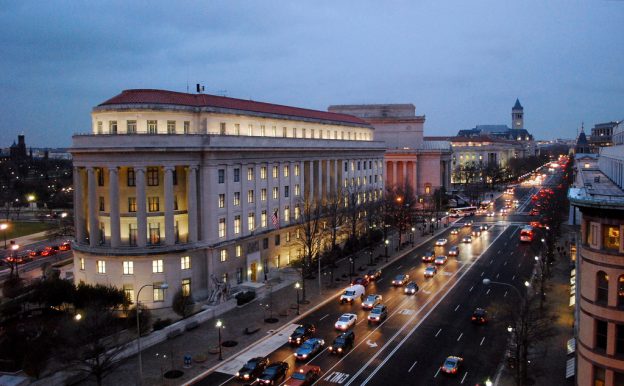Zakary Benjelloun – Historically, businesses have utilized non-compete agreements as a leverage tactic, aiming to maintain control over their workforce and safeguard their competitive edge. However, in recent years, these agreements have been faced with intense scrutiny, particularly by government agencies, questioning their legality and compliance with antitrust laws. Just last year, the Federal Trade Commission (FTC) introduced a proposed rule to ban non-compete agreements nationwide, sparking pandemonium amongst the business community and leaving the fate of these agreements and businesses in uncertainty. Now, amidst an election year, the future of these restrictive covenants is in peril.
Rumors suggest that the final vote on this proposed rule is expected to be executed within this month, stirring anticipation about its potential to reshape business practices across various industries. Moving forward into this period of uncertainty, it is crucial for both businesses and individuals to stay informed and flexible.Bottom of Form
In January of 2023, as part of efforts to combat unfair business methods, the FTC proposed a nationwide ban on non-compete agreements. Tasked with enforcing various antitrust and consumer protection laws, the FTC is a federal agency dedicated to protecting consumer rights and healthy economic competition. Having operated for over a century, the FTC plays a pivotal role in safeguarding consumers from fraud, deception, and unfair business practices. During this time, the Commission has promoted healthy competition by prohibiting anticompetitive business practices aimed at increasing prices, limiting choices, and/or reducing innovation.
As set forth in the Federal Trade Commission Act, the FTC’s actions and responsibilities include investigating and preventing unfair methods of competition and deceptive acts that impact commerce. This includes seeking relief for consumers and recommending legislation regarding issues affecting the economy. As evidenced by its latest rule proposal, the FTC firmly asserts that the antitrust implications arising from non-compete agreements necessitate the Commission’s involvement and immediate action on the issue.
Non-compete agreements are legal documents that impose restrictions on current and former employees preventing them from engaging in competitive business activities against their employer—such as joining a rival company or starting a competing venture—for a specified period post-employment. Accordingly, the definition set out by the FTC in their proposed rule follows suit. Agreements like these have been utilized by employers to control the actions of their employees and ensure the confidentiality of their proprietary information and trade secrets, which an employee might have obtained during their tenure. Nevertheless, these agreements hinder individuals attempting to secure subsequent employment post-termination, hence the FTC’s concern.
Currently, non-compete agreements are governed by state law. Some states only find these provisions to be enforceable if an employee makes above a certain salary threshold. However, this may no longer be the case. The FTC’s proposed rule would be a stark shift in the regulatory landscape. Applicable to all kinds of paid and unpaid workers, the proposal contains no carve-outs for highly compensated employees and indicates a shift in governance to the federal level. The proposal sets forth a stringent prohibition on employers from entering into non-compete agreements with new employees. Additionally, the proposal also requires employers to rescind existing non-compete agreements within 180 days of the rule’s effective date. With provisions such as the ones above, the potential enactment of this proposed rule will cause a “significant departure from the current realm of restrictive covenants,” ultimately banning non-compete agreements nationwide.
Despite lacking the authority of a final rule, the FTC has remained adamant on its position, filing three complaints against employers in the past year regarding non-compete agreements. Accusing employers of unfairly imposing non-compete agreements on employees, the FTC has asserted that such actions violate antitrust laws and ultimately harm competition, consumers, and workers. In attacking these agreements, the FTC stated that non-compete agreements frequently contribute towards unfair labor practices by restricting workers from seeking superior wages.
Nevertheless, the proposed rule has encountered significant backlash from businesses, with critics highlighting its ambiguity and overly broad nature. Further, critics contend that the proposed rule would diminish an employer’s ability to safeguard confidential information and other legitimate business interests, significantly hampering business operations throughout the nation. With increasing opposition, the FTC should anticipate similar responses in the future, including immediate legal challenges to the rule’s validity. For example, in commenting on the issue, the U.S. Chamber of Commerce argued that the FTC is exceeding its rule-making authority and has even considered taking legal action against it.
While these arguments have merit, both the FTC and the public have strongly countered such perspectives, asserting that employees tend to be coerced into signing non-compete agreements due to their vulnerable position in negotiations. Moreover, the proposed comprehensive ban on non-compete agreements could yield benefits by affording employees greater freedom and mobility. Advocates of the proposed rule state that it will provide businesses enhanced access to industry knowledge, thus fostering greater dynamism, innovation, and healthy competition in the economy. As such, the proposed rule has the potential to benefit 30 million Americans, as it offers employees greater autonomy in changing employers and establishing new businesses. Proponents of the proposed rule predict an increase in workers’ wages by at least $300 billion annually.
As the FTC’s final ruling rapidly approaches, the question remains: Will its proposal to ban non-compete agreements nationwide truly level the playing field by overcoming opponents’ challenges and coming into effect?


